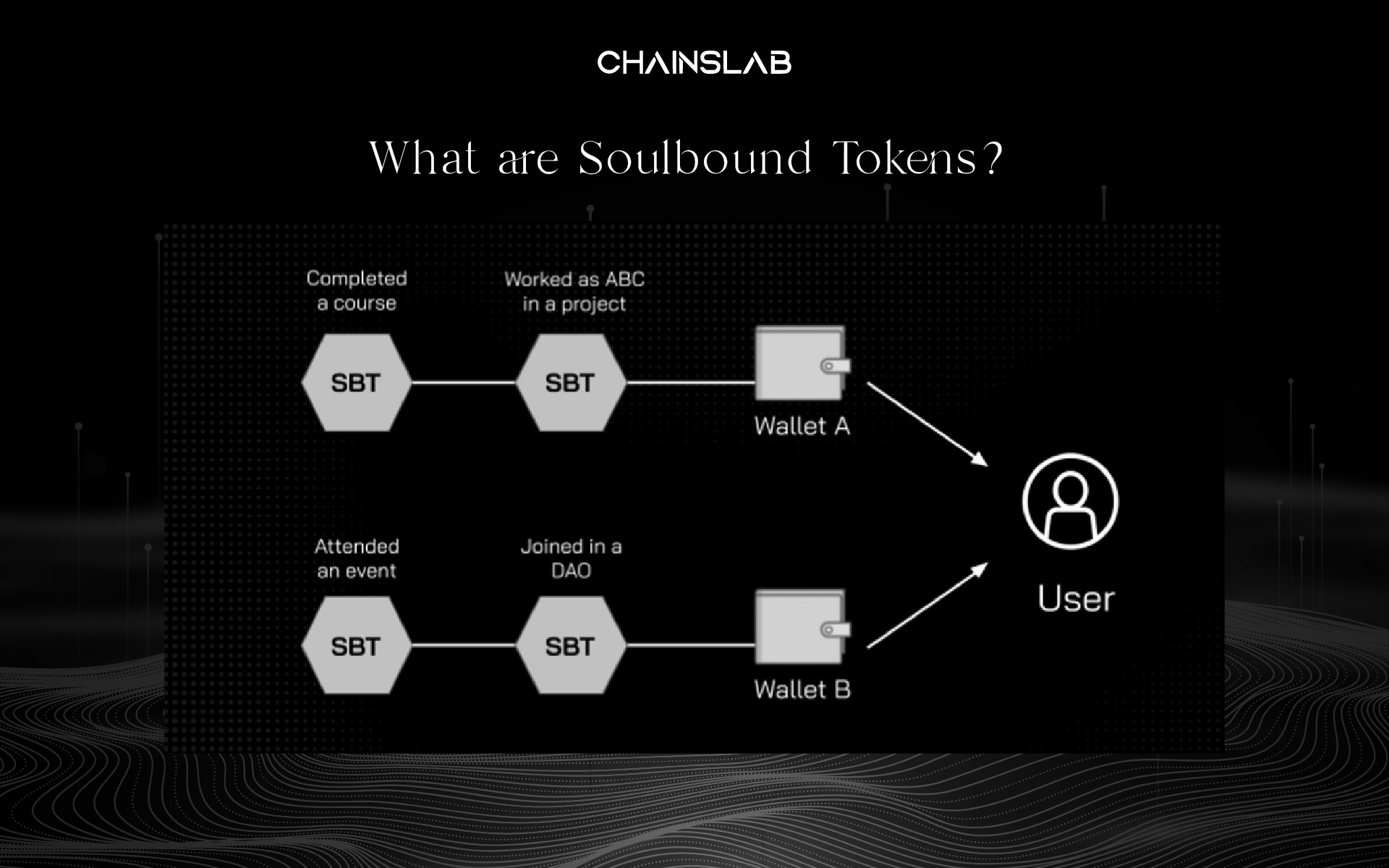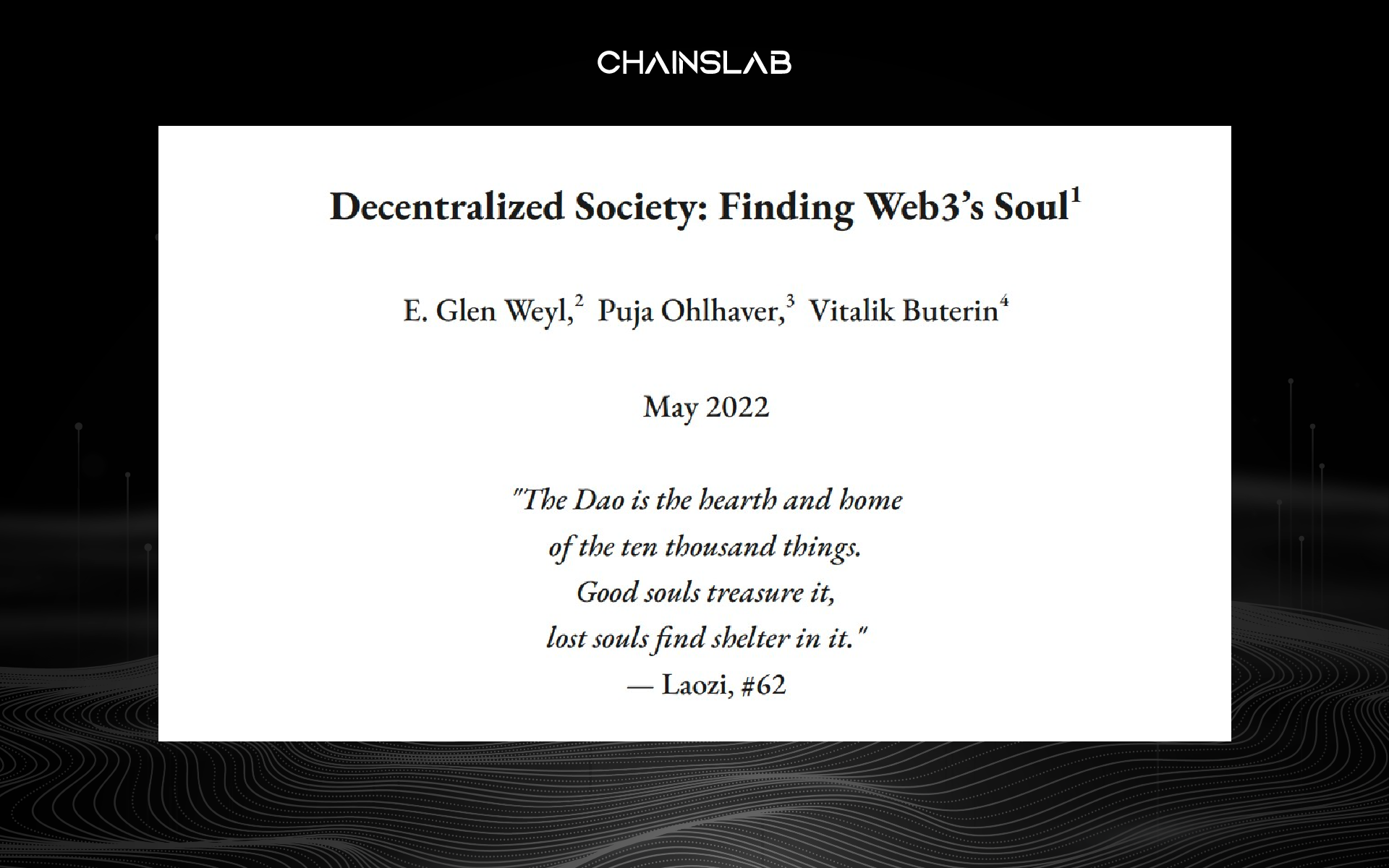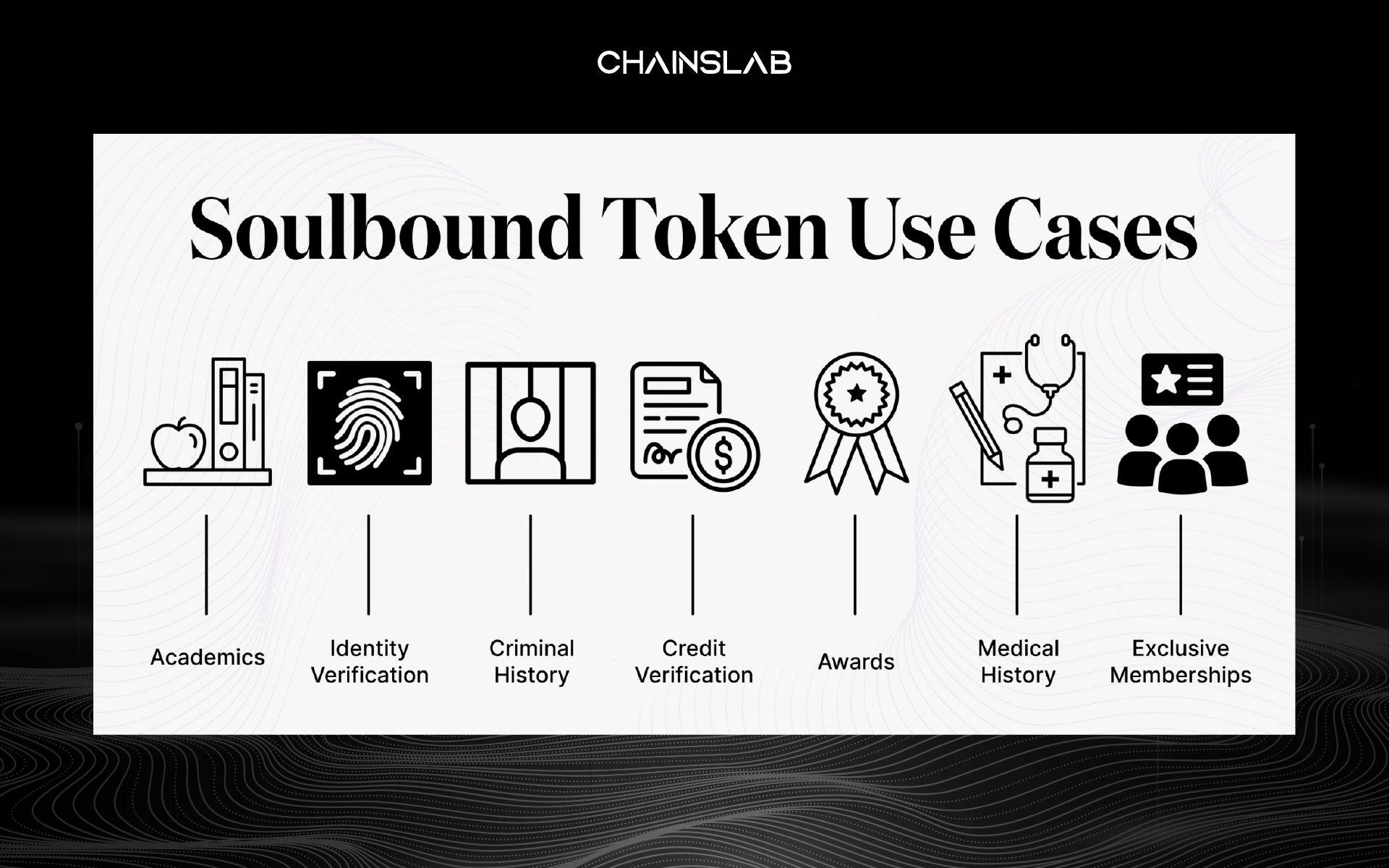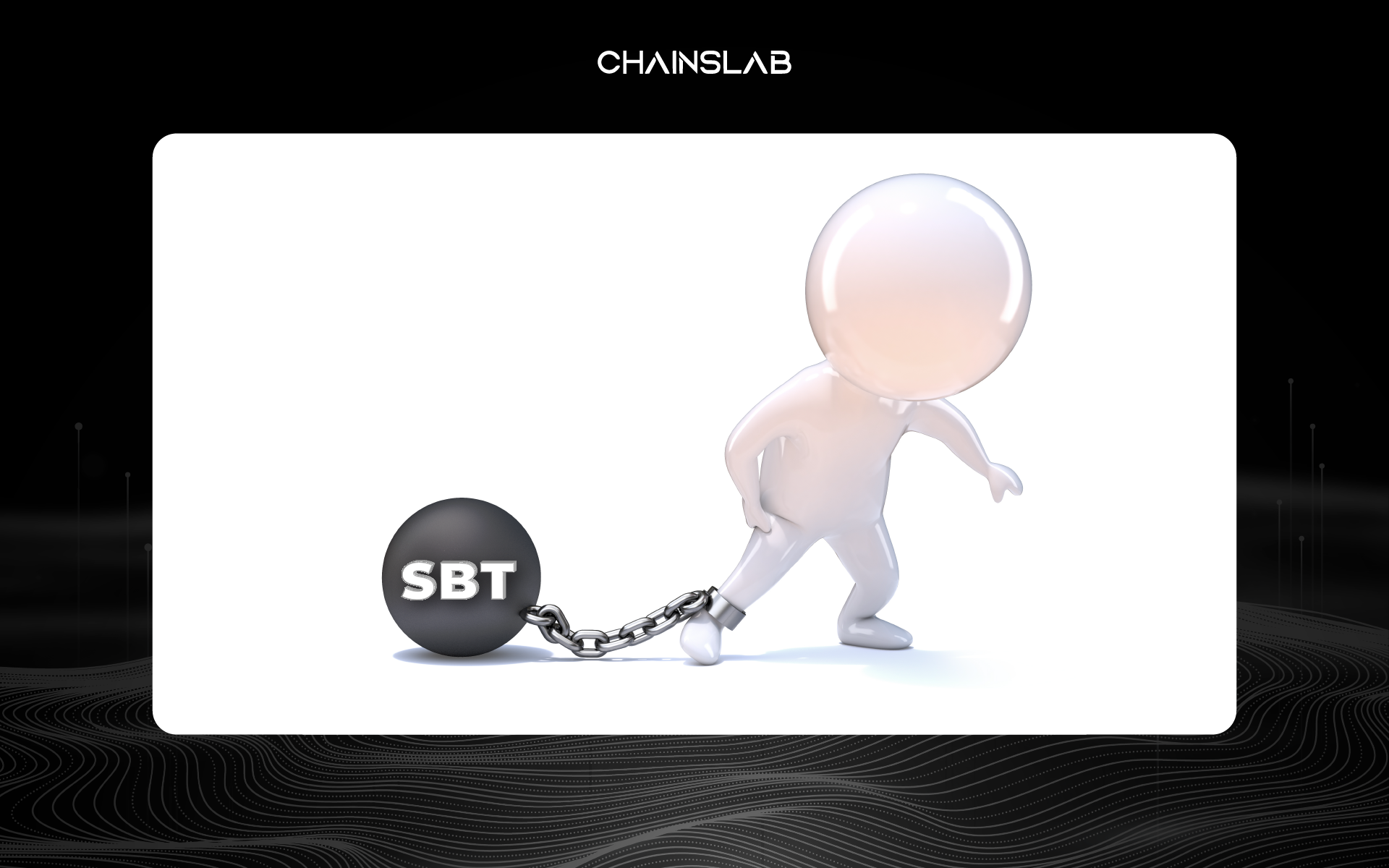NFT may have existed for years. NFTs have been used mostly in fields like art, real estate, play-to-earn games, collectibles. One of the major use cases of NFTs is to show asset ownership. Evolved from the ERC-721 standard, their interface contains details like ownership, metadata, and other information stored on the blockchain. However, herein lies the problem. In their current form, NFTs are limited to ownership.
Their utility is limited to proving ownership, but falls short of proving “earned” attributes, such as ability, experience or knowledge. For instance, the idea of proof-of-attendance protocol (POAP), where attendees of an event are given digital mementos or badges for showing up. If it is sold as an NFT to others, the buyer becomes the owner even though they did not attend the event. With the current dynamics of NFTs, any individual’s unique merits or credentials can be transferred to others. This creates the problem of authenticity because there is no way to prove the credibility behind these badges.
In the bid to solve this problem is where Soulbound tokens come in. In this article, we discover what Soulbound tokens are and its important/use cases in Web3.
I. What are Soulbound Tokens?
“Soul” is not a word commonly associated with the highly technical and often financially-oriented space of blockchain and crypto. To most, the term “Soulbound Token” in a crypto context sounds unintuitive, ironic, or just plain strange.
Simply put, Soulbound Token (SBT) represents the key to unlocking access to a group that needs members to prove their identity. A group can refer to a society, a channel, a government, and so on. Each SBT-based group decides how to build governance models, which can be decentralized or centralized. Once you acquire one, soulbound tokens will always be tied to your personal wallet and identity, and cannot be sold or given to another person. This makes it ideal to digitally represent assets that cannot be acquired by purchasing, such as certificates of competence, reputation, medical records, etc.

The fact that they are non-transferable means that they are tied to the user for their whole life. The owner of the token can then control who has access to the data contained within the token, and can also revoke that access when they see fit. So soulbound tokens offer a solution for individuals who want maximum control over their personal data, because they allow that data to be managed in tokenized form, rather than kept on a central database.
Soulbound Token was proposed by Ethereum founder, Vitalik Buterin, would form an essential building block for this Decentralized Society (DeSo). These non-transferable tokens represent credentials and affiliations within DeSom and are linked to Souls, a type of address that establishes provenance.

SBTs aim to turn the NFT concept into something beyond money and bragging rights, a token that is both one-of-a-kind and non-transferable. While NFTs represent assets and property, an SBT represents a person or entity’s reputation. And unlike an NFT, SBTs hold zero monetary value and cannot be traded once issued to someone’s wallet.
II. Use Cases of Soulbound Tokens

SBTs have a wide range of use cases. Some of them include:
- Identity - It is one the most notable use cases of SBTs so far. Each Soul (a crypto wallet) stores the holder's data, such as credentials, certificates, memberships, etc., in the form of Soulbound Tokens.
- Education history and work resume - It can be used as proof-of in major institutions like education. When students graduate, the institution’s Soul wallet can offer their respective certificate. The SBT would hold the student’s credential thereby proving the authenticity of a student’s credential.In line with this thought, SBTs contain personal data, individual achievements, and work credentials. Hence, it can also be used as a digital resume in the case of job searches and employees looking for better opportunities.
- Credit history - It can also provide a means for creditors to see the credit report of those seeking loans and be more willing to lend since they have proof of the person’s diligence in payment.
- Medical records - Having a medical record as a SBT can enable a seamless process while switching doctors or seeking insurance. It helps eliminate the pain points of verifying one’s identity, past medical records, and explaining medical history while switching doctors.
III. Limitations of Soulbound Tokens

Based on the submission by Buterin and his co-writers, there have been questions on issues like the loss of keys. If you can’t access your original wallet and the SBTs secured there cannot be transferred to another wallet - will users “lose their soul” forever? In addition, the sensitive nature of the information that would be stored there raises serious considerations about the security of using Soulbound Tokens.
In the case of the former, Buterin and his team show that tokens have a recovery mechanism designed to make sure kegs are recoverable through a specific “guardian” chosen by the owner of the key. For the latter, they state that the SBTs have the option of being public or private, depending on the discretion of the user. This helps to protect the users and their data from online exploitation.
Apart from the above, people have also speculated about whether these use cases could have negative repercussions, such as the creation of a “social credit system”. A type of social credit system, culminating in a social credit rating or blacklist depending on the conduct of the user, is being developed by China. Every individual’s online handle will be attached with a real ID and all the data related to that person will be stored online. This way, people with problematic histories can be identified easily, something that raises ethical questions about privacy, and how these tokens would be used.
IV. The Future of Soulbound Tokens in Web3

Trust is one of the main challenges affecting the Web3 industry. How can you trust a person’s reputation in a system designed to be trustless? Let’s use lending money as an example. Similar to traditional bank credit scores, SBTs could track a user’s DeFi borrowing history as well as other metrics that determine their risk profile.
SBTs are also a proposed alternative for decentralized autonomous organization (DAO) voting. Instead of the current governance model, which is based on how many tokens a member holds, DAOs could issue SBTs that assign voting power based on users’ interactions with the community. This model would prioritize voting power for the most dedicated users with a strong reputation.
Besides creating a reputation-based voting system, SBTs may potentially improve the integrity of DAO voting — namely, defending against Sybil attacks — one of the biggest threats to the current DAO governance model.
During a Sybil attack, an individual or a group of bad actors overthrow a DAO by purchasing the majority of governance tokens. Those with majority voting power can manipulate voting proposals and steer the project’s direction in their favor. The public and verifiable nature of SBTs could help detect and prevent bad actors from entering the DAO and, in turn, deter corruption and Sybil attacks from occurring.
Furthermore, undercollaterized lending is still a big challenge for lending protocols in crypto. Lending protocols have to put lenders’ sake above all since they are loan owners. The collateral ratio (collateral/loan) is often more significant than 100%, meaning overcollateralized lending. This principle secures the benefit of lenders because liquidation is triggered when the collateral declines to a value smaller than the loan.
Some example of SBTs in action:
- Binance Account Bound (BAB): BAB aims to tackle identity verification issues in Web3, serving as a digital verification tool for Binance users who have completed KYC. In addition to the Binance ecosystem, third-party protocols will be able to use BAB tokens to airdrop NFTs, prevent bot activity, and facilitate DAO governance voting, among other use cases.
- On-Chain Achievement Tokens (OATs): are a creative solution to distribute NFT badges to communities as a record of participation. Brands and projects can use Web3 educational platforms infrastructure to create their own personalized OATs to reward their community members. One of the notable platforms, Galxe.
V. Closing Thoughts
Let’s go back to the beginning. The goal of blockchain is not just storing value, but allowing regular people to have sovereignty over their data and how it’s used. SBTs have become a hot topic in Web3. In theory, SBTs could allow people to establish their own digital reputation and assess someone else’s on the blockchain. It remains to be seen if an SBT can function as Web3’s version of the “identity card.”
With the rise of SBTs, the average individual is in charge of their data and can decide both how to manage it and who can access it – something that may seem small, but represents a huge step forward from the centralized model of data storage we currently accept. In their purest and fullest expression and manifestation, however, Soulbound Tokens stand to become a foundational element of the Decentralized Society movement, in which communities emerge around shared networks and goods that are owned and managed by the Souls that use them .
For the market insights on Souldbound token and other technologies, head over to the Chainslab Twitter to keep yourself always updated.
